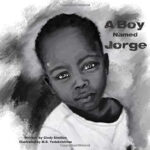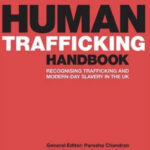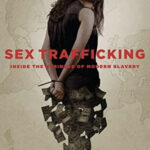Domestic servitude is the seemingly normal practice of live-in help that is used as cover for the exploitation and control of someone, usually from another country. It is a form of forced labor, but it also warrants its own category of slavery because of the unique contexts and challenges it presents.
Victims of domestic servitude may appear to be nannies or other domestic help, but the moment their employment arrangement transitions into a situation whereby they cannot leave on their own free will, it becomes a case of enslavement.
The circumstances of live-in help can create unique vulnerabilities for victims. Domestic workplaces are connected to off-duty living quarters and often not shared with other workers. Such an environment can isolate domestic workers and is conducive to exploitation because authorities cannot inspect homes as easily as they can formal workplaces.
Domestic servitude can also be a form of bonded labor. This form of slavery happens when migrant workers reach a destination country, and they incur a debt for their travel and/or a recruitment fee. Though working, if their employer or recruiter adds on additional costs that can never be repaid, like housing or food, then the arrangement has transitioned into a form of slavery. This problem is compounded when employers or recruiters neglect legal documentation or confiscate it because migrant domestic workers are often fearful of reporting the abuse for fear of legal consequences.
Forced Marriage
Domestic servitude can also be linked to forced marriage. Forced marriage is a marriage without the consent of one or both parties, and the U.S. government considers forced marriage to be a violation of human rights. In the case of minors, it’s also a case of child enslavement. Forced marriage is a mix of several forms of slavery, including forced labor, sexual enslavement and domestic servitude.
Domestic Servitude throughout the World
Forced domestic servitude occurs throughout the world. Migrant workers are often vulnerable to domestic servitude, and some recruiting agencies trick workers into moving abroad and then confiscate their documents. This leaves workers stuck inside a home with no power to walk away. In many cases, these workers-turned-slaves are beaten by the families they serve and work from very early in the morning to late at night. Oftentimes, these individuals do not speak the language of the country they are in, are fearful of immigration officials or are unable to make contact outside of the home they serve. Beatrice Fernando’s story shows how this happens all throughout the world.
Forced domestic servitude is quite common in Haiti, whereby forced child servants are called restaveks. Restavek comes from the French “rester avec,” which means “one who stays with.” Haitian parents send their children to work and live with other families in exchange for better care and educational opportunities. These children are forced to work as enslaved domestic servants, and there are hundreds of stories of these children facing extreme beatings and inhumane living conditions, while never receiving the promised care or education.
(End slavery now .org)





